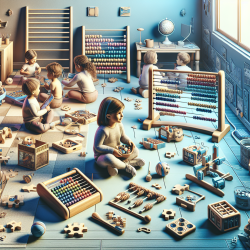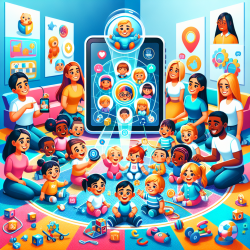In the realm of early childhood education, there's a growing recognition of a powerful approach that not only fosters cognitive development but also nurtures emotional and social skills: learning through play. This method aligns perfectly with the mission of TinyEYE, which provides online therapy services to schools, emphasizing holistic child development.
The Importance of Early Learning
Early childhood is a critical period for human development. During these formative years, children develop cognitive skills, emotional well-being, social competence, and physical health. According to research, a child's brain forms neural connections at an astonishing pace during this time. These connections are enhanced by nurturing environments and responsive caregiving that encourage exploration and secure attachment.
Why Play Matters
Play is not merely a leisure activity; it's a fundamental strategy for learning. It allows children to explore their world, develop creativity, and build critical skills. Playful experiences engage children actively and socially, providing them with opportunities to make sense of the world around them.
- Joyful Engagement: Play is inherently enjoyable and motivating for children. It encourages them to explore new ideas and challenges in a supportive environment.
- Active Learning: Children are deeply involved in play, combining physical, mental, and verbal engagement.
- Iterative Process: Through play, children practice skills, test hypotheses, and discover new challenges.
- Social Interaction: Play facilitates communication and understanding among peers, fostering relationships and deeper learning.
The Role of Educators and Caregivers
Educators are rethinking their teaching methods to tap into children's vast learning potential through play. Teachers play a crucial role in scaffolding playful experiences that promote holistic development. Similarly, caregivers at home can support this process by creating environments rich in playful opportunities.
A Systems Approach to Play-Based Learning
Integrating play into educational systems requires a coordinated effort across various sectors. This includes developing policies that recognize children's right to play, creating curricula that emphasize playful learning, and providing professional development for educators. Additionally, engaging families and communities as partners in this endeavor ensures continuity and connectivity in children's learning experiences.
The benefits of play extend beyond pre-primary education. In primary grades, play enhances mastery of academic concepts while building motivation to learn. It fosters creativity, imagination, and problem-solving skills—key components for success in our rapidly changing world.
For more information on strengthening learning through play in early childhood education programs, please follow this link.










